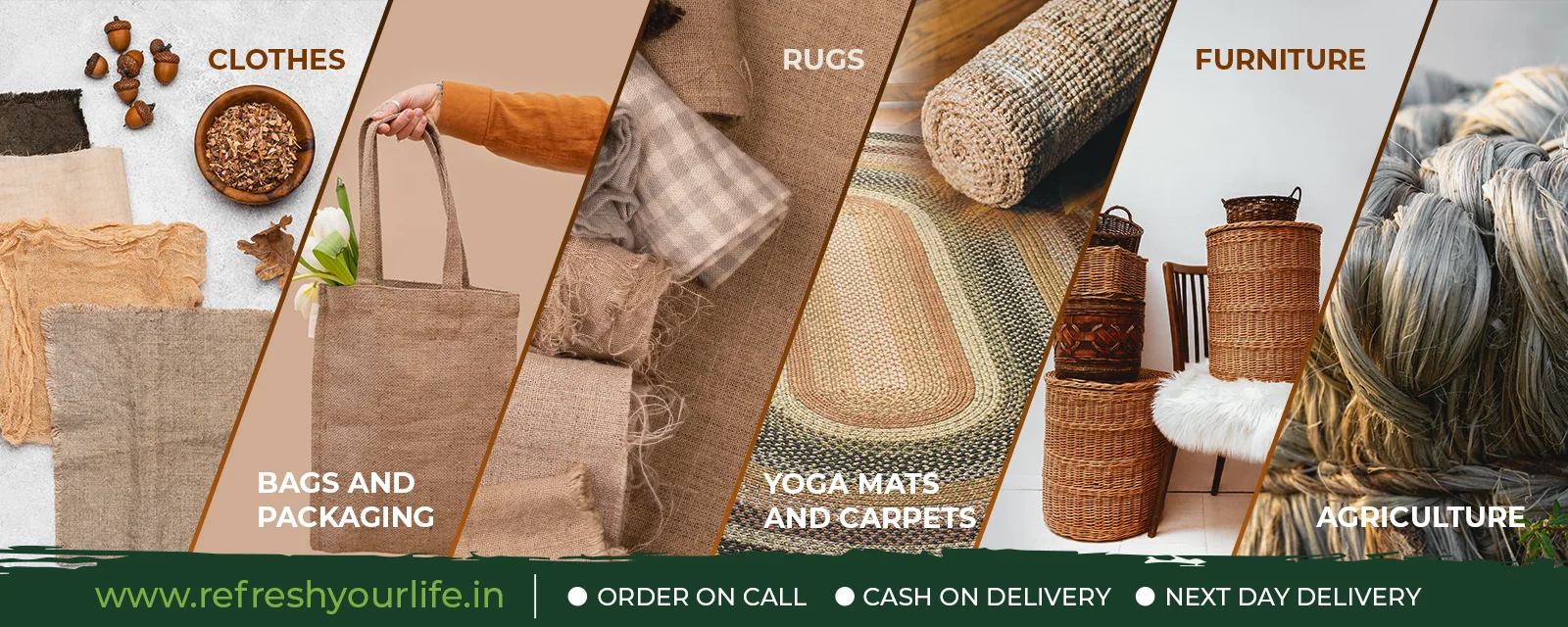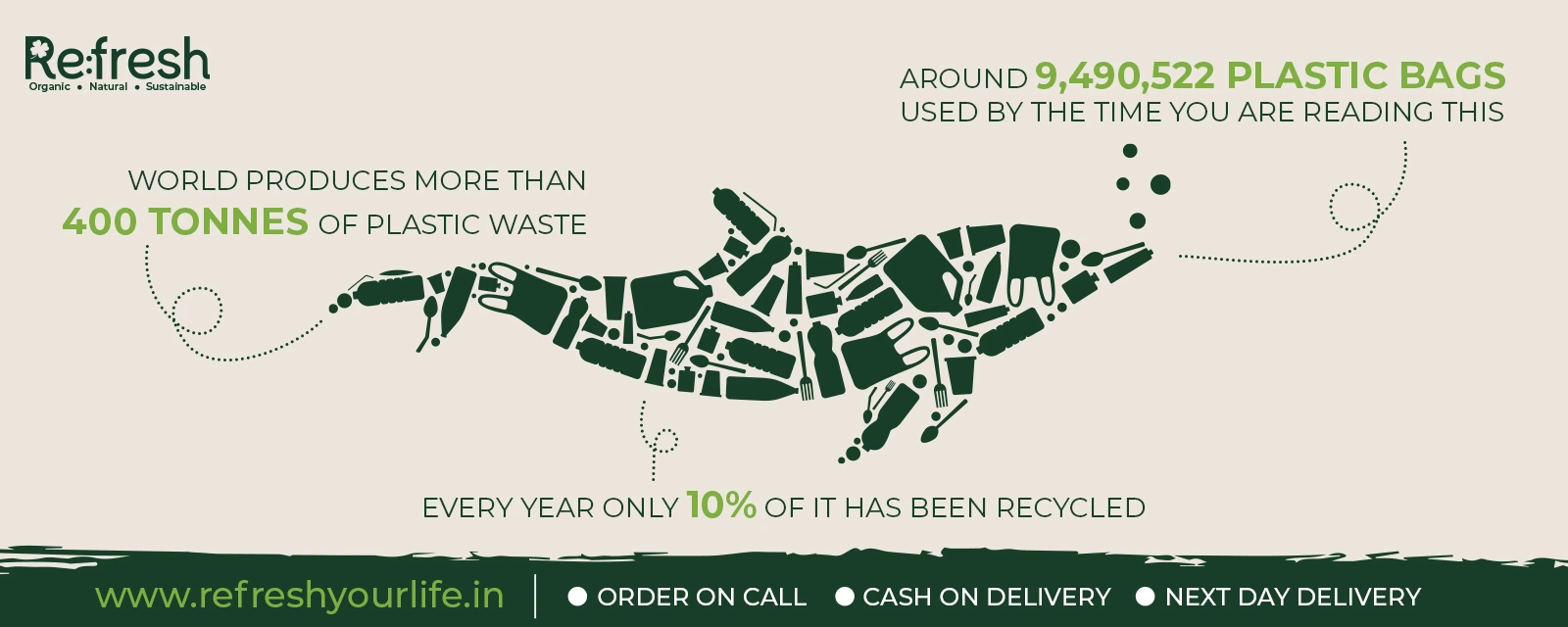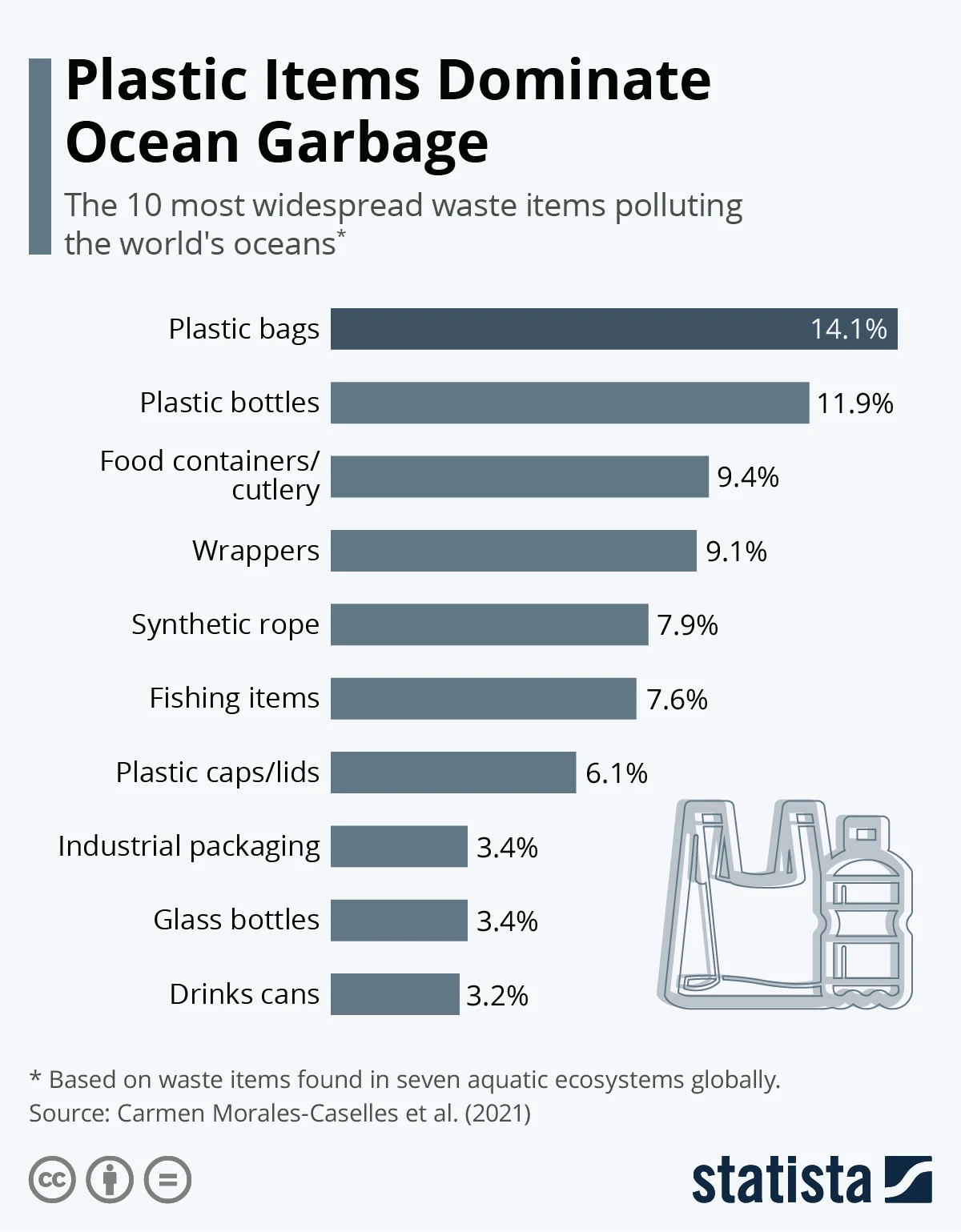How Jute Bags can change the packaging industry.
Jute bags emit considerably less carbon and sustain a future for our packaging industry. India is home to thousands of Jute producers. Can these “Golden Fiber” become a solution to Climate Change?
From bags caught in animal food to the mounting garbage dumps, our single-use plastic is everywhere.
It will take another 1000 years for our plastic waste to decompose. Plastic pollution is one of the most pressing environmental issues, as rapidly increasing production and the world's inability for its efficient disposal.
As the demand for an alternative rises, Jute can become a sustainable plastic alternative. This article delves into various aspects surrounding jute and jute bags for packaging.

Production of Jute:
Jute is a long, shiny, coarse textile fiber made from jute plants (Corchorus capsularis). This golden fiber can be spun into strong and tough fabrics to carry heavy loads.
85% of these fertile crops grow on the fields of the Indian Ganges Delta, a tropical region that India and Bangladesh share.
India has been harvesting Jute for at least 5,000 years and the process of extracting this fiber is both an art and science, practiced from generation to generation.
Apart from being breathable and durable, Jute is a natural fiber with a low carbon footprint. When synthetic and toxic man-made fibers remain detrimental to the environment, Jute rapidly reabsorbs into the surrounding ecosystems.
India has been the top producer of jute and jute-derived products. It is important to note that Jute production is mainly natural and requires fewer artificial inputs, presenting an opportunity to be used in green packaging.
What can be made from Jute Fibers?
Traditionally, Jute has been used in multiple areas of society due to its versatility and robust toughness. It allows manufacturers to offer sustainable and affordable products that comply with the environment.

Clothing:
Jute fibers are used to create sweaters, cardigans, jackets, and sarees, especially in South Asian countries due to cultural significance.
Bags and Packaging:
One of the most significant uses of Jute is in the packaging and transporting industry where bags, sacks, and packaging materials are made. Burlap bags, a popular kind of jute sack to transport agricultural and industrial goods, have been used for years.
Rugs:
Jute rugs are popular in home decor where coarse, tough, and durable carpets help provide a natural look. They are also woven to create a fabric called hessian cloth, used as a backing for various rugs.
Yoga Mats and Carpets:
Yoga mats require a strong, non-slippery, and breathable fabric, for which Jute has a lot to offer. The non-toxic and cushioning jute yoga mats are gaining a niche for themselves.
Furniture:
Incorporating a natural touch to the interior, Jute is used to make sofas, chairs coverings, fabrics, and tables.
Agriculture:
Jute fibers are used to make ropes and twines that help tie up harvest. It also provides effective control for soil erosion and protects seeds during plantation.
Benefits of Jute Bags:


In such circumstances, Jute bags present the answer to the world with their eco-friendly and natural fibers.
Jute bags have a myriad of advantages, including a choice for packaging, supporting 0.37 million jute producers in India, and including:
Jute bags are 100% Biodegradable.
Jute is durable, tough, and versatile.
Jute bags have a low carbon, water, and ecological footprint.
Jute bags are great for packaging and gifting. Explore our bags here.
Jute bags are aesthetic, and trendy and come in various designs.
Jute bags are cost-effective and compostable.
Jute Vs. Plastic Bags:
The packaging industry has long relied on plastic bags, especially single-use plastic, to stock, carry, transport, and store goods.
For the majority, they have become an integral part of our lives. To shift the usage of eco-friendly jute bags, particular distinctions can be made.
Jute for a Circular Economy:
As the global consciousness towards environmental sustainability increases, the jute industry is also going through a transformation.
Much of the non-biodegradable waste like plastic bottles, straws, and cigarette butts end up in our oceans and rivers.
A circular economy equalizes the consumption and disposition of materials used by mankind. Jute, a natural fiber, presents a striking solution to the problem where our landfills are causing genetic disorders.
Innovations like “The Sonali Jute Bag”, where Mubarak Ahmed Khan is making jute into a biodegradable plastic like-bag. The Bangladesh government has invested USD 2 million in his idea and the end product is 100% biodegradable. It looks similar to plastic and carries properties that are advantageous to the environment.
The Indian jute industry is worth USD 286.48 million. Brands should consider substituting plastic with jute and hemp alternatives. This way, businesses can also leverage benefits to the rural economy and support MSMEs.
Using Jute for packaging and transport can significantly reduce our dependence on plastic bags. Consumer demand for the same has been exemplified and innovative brands have been established in India, every day.
Conclusion:
The jute bag, a timeless and sustainable product, holds the potential to revolutionize the packaging industry. While resistance and infrastructural limitations persist, the growing demand for a sustainable economy poses a significant opportunity for the brands.
With continued innovation, research, and government support, jute bags can become a preferred packaging choice.
Like this project
Posted Sep 30, 2024
This blog explores the benefits of jute bags as a sustainable alternative to plastic bags. I researched, articulated, and brainstormed the tone of this article.
Likes
0
Views
10




